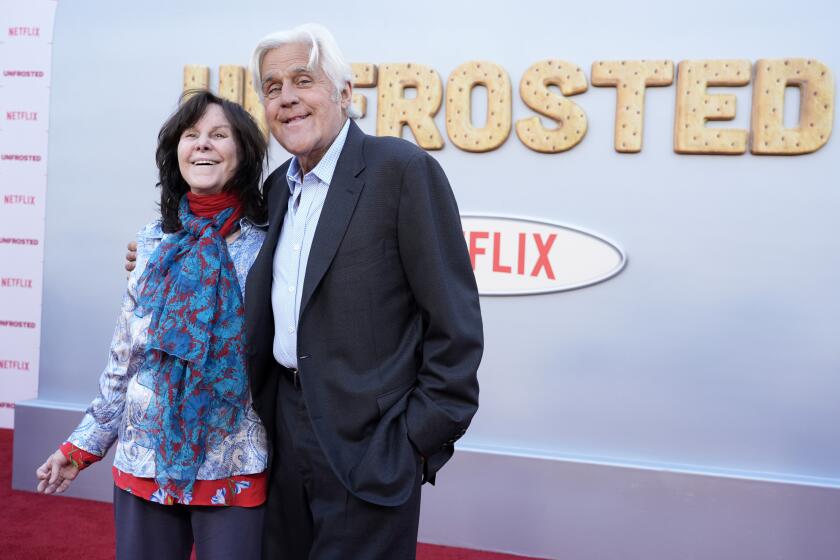Trapped Between Two Worlds : ‘Thin Air’ Reflects on Lessons Learned in Search for Identity
- Share via
SAN DIEGO — There are moments of truth in the life of playwright Lynne Alvarez that she revisits again and again, with tears in her eyes.
The first came in 1968 when she was 20, fresh out of college at the University of Michigan, working at a newspaper in Veracruz, Mexico. She was stunned one day at work when the news came in on a ticker tape saying that 500 people had been killed in a government-squelched protest at a middle-class apartment complex. The owner of the newspaper ripped up the tape and told the reporters, “You never saw that.”
Later, Alvarez told the owner she wanted to start a student column called “Youth’s Podium,”in which she would print questions and complaints by students. The owner warned her against it, saying, “You don’t know what you’re getting into.”
“He let me do it, but he was right. I didn’t know what I was getting into. I held meetings. I thought I was opening avenues of communication, (but) one paper said I was with the CIA, another said I was with a leftist group. Soldiers stopped some of my students and threatened them with guns and told them to tell me I would be killed if I didn’t stop what I was doing. They threw my husband in jail.”
Frightened, Alvarez stopped and began studying for a degree in Latin American history, “because I knew I didn’t know what I was doing.”
She looks back on that decision with evident pain.
“I feel very badly. I was very, very young. And it was a real test of integrity. And I don’t feel I did very well.”
Alvarez describes the story of naive Americans caught in intrigues they don’t understand in “Thin Air: Tales From a Revolution,” her new play that will have its world premiere at the San Diego Repertory Theatre’s Lyceum Space, Thursday through Aug. 27.
In “Thin Air,” an American composer and his family are caught between regimes in an unnamed Latin American country where the wrong word or gesture can lead to terrorism or death.
“The play is my examination of how to act with integrity and
how sometimes you can act without integrity when the situation is ambiguous,” Alvarez said in between rehearsals at the Rep. “It has to do with ideals and expectations and how you have to act when things happen unexpectedly. It’s also about the feeling of being an outsider.”
Alvarez has been feeling like an outsider ever since she returned from Mexico about 15 years ago.
Born in Portland, Ore., and raised in Detroit, she never learned any Spanish from her father, a general practitioner, or her mother, a housewife, both natives of Argentina who met and married in Florida.
In high school she studied French. In college, she majored in Italian and Romance languages. Only an impulsive desire to visit relatives in Mexico after college led to the trip that changed her sense of identity. She married and had a child there, and, although she has since divorced and moved to Upstate New York, it was Mexico that fueled her poetry and later her first play, “The Guitarron,” written with the encouragement of a workshop at the Puerto Rican Traveling Theatre in New York 11 years ago.
At the same time, she didn’t really feel she could write with authority as a Mexican since she wasn’t Mexican, didn’t feel she could write as an Argentine because she had never been to Argentina, and didn’t feel she could write about the urban Latino-American experience since she had grown up thoroughly assimilated into a comfortable suburban community.
“Thin Air,” she said, will be her last play about what she calls “a foreign culture.” After writing four plays about her life in Mexico, she feels she has exhausted her memories about that time.
“You should write about what you know, and I’ve written about everything I know or have felt about that. I consider myself an American writer. My work has to be from where I am now.” (She lives in Cooperstown, N.Y., where she calculates that there are “two Hispanic people”--herself and her 18-year-old daughter, Nancy).
“Some people speak for a group all the time, and I think that’s wonderful. I can’t speak like Neruda. I can’t say (like him) that ‘I am Chile.’ August Wilson has a mission. Solzhenitsyn is like the flower of his culture. They have strong roots. I don’t have the power of that kind of simplicity.
“I have to speak from my point of view as a wanderer. It’s like being a reporter who is not of the situation but just observing it. That makes for a more fragmented point of view. You constantly have to figure out where your power comes from, and what are your beliefs. People want you to speak for something, and when you get something produced, you are making a public statement and you have to be responsible for what you are saying.
“I feel my test as a person is to find out what my point of view is. I think I will succeed or fail on the strength of my commitment to it. It’s a challenge I have to work at.”
THURSDAY IN CALENDAR
Progress in the Latino theater scene in San Diego. An update by Nancy Churnin.
More to Read
The biggest entertainment stories
Get our big stories about Hollywood, film, television, music, arts, culture and more right in your inbox as soon as they publish.
You may occasionally receive promotional content from the Los Angeles Times.










